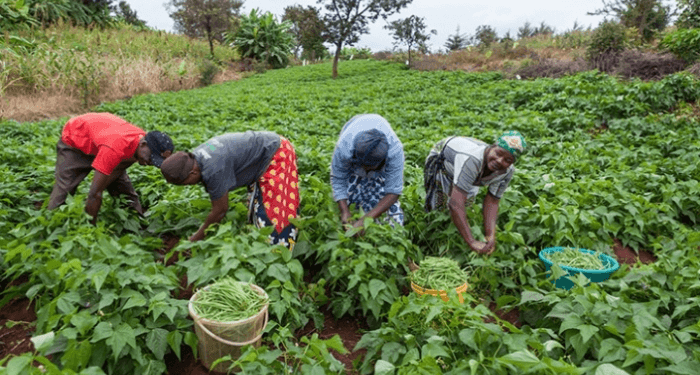A Non-Governmental Organisation, Hope Behind Bars Africa (HBBA), has launched the Farming Justice Project at the Kuje Custodial Centre in Abuja to promote inmate rehabilitation and address food insecurity within correctional facilities.
The initiative, implemented in partnership with the Nigerian Correctional Service (NCoS), is funded by the European Union through International IDEA under the Rule of Law and Anti-Corruption Programme.
Speaking at the launch on Tuesday, the Executive Director of Hope Behind Bars Africa, Funke Adeoye, said the project aligns with Nigeria’s evolving correctional system and the need to promote true rehabilitation.
“With the change in nomenclature from ‘prison’ to ‘correctional service,’ there is a need to ensure that our custodial centres reflect that change through genuine rehabilitation and empowerment,” Adeoye said.
She explained that the Farming Justice Project combines agriculture with restorative justice principles, offering inmates the chance to acquire valuable life skills and contribute meaningfully to society both during and after their incarceration.
According to her, over 80 inmates are currently being trained in modern farming techniques for crops such as okra, watermelon, and tomato. Some of the harvested produce, she added, has already been consumed by inmates showing tangible progress in tackling food shortages within custodial centres.
“Our goal is to reduce recidivism by equipping inmates with viable means of livelihood after serving their sentences. We are calling on partners and well-meaning Nigerians to support the NCoS in ensuring effective rehabilitation and reintegration of inmates,” she said.
Adeoye also commended the Comptroller General of the Nigerian Correctional Service, Sylvester Nwakuche, for his support and commitment to reforms that integrate skill development and public-private partnerships.
The project currently operates at the Kuje Custodial Centre and the Dukpa Farm Centre in Abuja, with plans underway to replicate the model in other correctional facilities across the country, including Lagos, where HBBA has previously worked with female inmates on similar agricultural projects.
In his remarks, the Controller of Corrections for the FCT Command, Christopher Jen, praised the initiative as a vital step toward achieving a more inclusive and rehabilitative justice system.
“My desire is to see a better Nigeria tomorrow where everyone will live without fear or anxiety. The enthusiasm and willingness of inmates to learn skills today give me confidence that such a future is possible,” Jen said.
He described the Kuje Custodial Centre as a “centre of excellence” in vocational training, highlighting ongoing programmes such as barbing, carpentry, plumbing, embroidery, shoemaking, electrical work, soap making, and fishery.
A representative of International IDEA, Joseph Odeh, also commended the collaboration, stressing that effective justice reform requires joint efforts.
“Justice reform is not the responsibility of one institution alone. It is a shared mission that requires the active participation of all sectors of society,” he said.
The event featured a guided tour of the Kuje facility, the unveiling of the Farming Justice Project, and visits to various skill acquisition centres where inmates are receiving hands-on vocational training.










